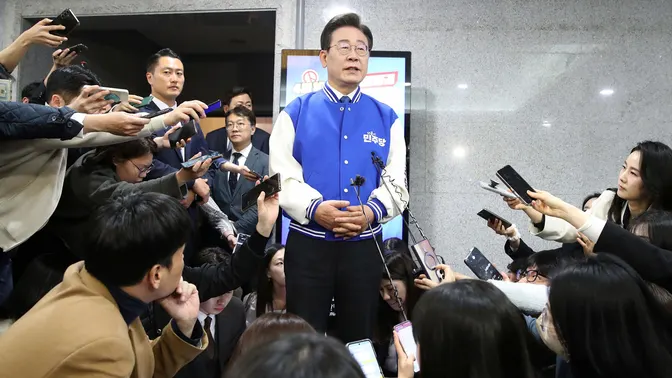In a significant turn of events, South Korea’s liberal opposition parties are projected to win a landslide victory in the recent parliamentary elections, according to exit polls. This development could pose considerable challenges to President Yoon Suk Yeol, potentially making him a lame duck during the remainder of his term. The combined forces of the main opposition Democratic Party and its affiliate are expected to secure between 178 to 197 seats out of the 300 available in the National Assembly, with a new liberal party anticipated to add 12 to 14 seats to the opposition’s tally. Meanwhile, the ruling People Power Party and its affiliates are projected to win only between 85 to 105 seats.
The elections were widely regarded as a mid-term referendum on President Yoon, whose administration has focused on bolstering ties with the U.S. and Japan to address security and economic challenges. Despite this, Yoon has faced dwindling approval ratings and a parliament controlled by the liberal opposition, limiting his domestic policy initiatives.
The results suggest that “if the opposition parties garner combined 200 seats—two-thirds of the 300 parliamentary seats at stake—or more, they will have legislative powers to pass bills vetoed by a president and can even impeach him.” This potential outcome marks a dramatic shift in South Korea’s political landscape, indicating a public sentiment leaning away from the current conservative government.
The high voter turnout, estimated at 67%, the highest since 1992, underscores the public’s engagement and desire for change. This election comes in the backdrop of heightened political tensions, with both conservative and liberal parties engaging in heated exchanges and personal attacks, reflecting the deep-seated divisions within South Korean politics.
Han Dong-hoon, a ruling party representative, expressed disappointment in the exit polls, committing to await the final ballot count. In contrast, Democratic Party members, including leader Lee Jae-myung, celebrated the initial results, promising to respect the electorate’s decision. Lee Jae-myung, a vocal critic of President Yoon and a potential presidential contender, faces various challenges, including corruption investigations, which he claims are politically motivated.
If confirmed, the election results could render President Yoon’s remaining term challenging, especially in advancing his domestic agenda. Experts predict a political deadlock, with neither side likely to compromise, leading to a stagnant legislative process.
South Korea’s parliamentary election exit polls paint a picture of a nation ready for change, favoring liberal opposition over the current conservative government. This shift could redefine the country’s political landscape, impacting President Yoon’s ability to govern effectively. As the final results unfold, South Korea stands at a crossroads, with its future direction hanging in the balance.







